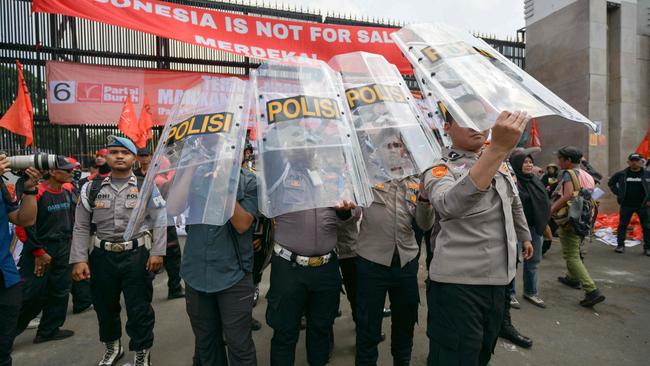
The backroom deals and manipulations aimed at shoring up a power base for the outgoing President and an overwhelming parliamentary majority for the incoming one, Prabowo Subianto, have spilled ostentatiously into the open in recent months with apparently scant concern for how it looks to those in the bleachers.
Why should there be when none of it appears to have dented the popularity of Jokowi, described this week by one of his own key supporters and political powerbrokers as a “Javanese King” who should not be crossed?
Yet in the past 48 hours the phrase “emergency warning” has been trending across Indonesian social media after the nation’s parliament, dominated by a huge Jokowi-Prabowo coalition of parties, shrugged off two binding rulings by the Constitutional Court.
One of those judgments upheld an existing law requiring all regional election candidates to be at least 30 years old at the time of nomination. That would effectively have blocked Jokowi’s youngest son, Kaesang, 29, from contesting regional elections.
The other would have lowered the nomination threshold for regional election candidates, opening up dozens of regional and provincial electoral races that are currently one-horse contests to greater competition.
Both would have upset the careful calculations of the Jokowi-Prabowo alliance to divide provincial political power among its 10 coalition partners, and opened the door for former presidential candidate Anies Baswedan, Jokowi’s political nemesis, to stand for re-election as Jakarta governor.
Anies’s chances of nomination appeared all but lost before Tuesday’s rulings, after the recent defection of several parties that had supported him.
That all hangs in the balance, along with the sanctity of the Constitutional Court, as all sides consider their next steps and protests gather steam on Jakarta’s streets. The direct challenge to Indonesia’s rule of law, via parliament’s overriding of the highest authority on questions of constitutional law, has pushed the country into new territory.
The haste with which the House of Representatives convened on Wednesday to overturn two judgments incompatible with the dominant coalition’s political agenda has shocked even seasoned observers of Indonesia’s democratic decline.
Some date the beginning of that deterioration to the Jokowi government’s 2019 strategic defanging of the Anti-Corruption Commission (KPK), which critics say has since been weaponised to keep political foes and wayward allies in line. For many, the gloves came off in the lead-up to February’s presidential elections. In October, the same Constitutional Court changed eligibility requirements for candidates to high office in a move that looked tailor-made to enable Jokowi’s eldest son, now vice-president-elect Gibran Rakabuming Raka, to run alongside Prabowo.
The legal amendment was passed with the deciding vote of the President’s brother-in-law, then chief justice Anwar Usman, who has since been demoted and was not involved in Tuesday’s rulings.
Jokowi’s subsequent partisan support for the Prabowo-Gibran ticket, the alleged use of state resources to aid their campaign, a Supreme Court ruling in June lowering the allowable minimum age for regional election candidates – to name just a few – seemed almost inevitable after that. The institutional pillars holding up Indonesia’s democracy are being challenged.




Watching the brazen scrabble among Indonesia’s political elite to shore up power and privilege before the end of President Joko Widodo’s decade-long tenure in October has felt increasingly like having a front-row seat to the last days of the Roman Empire.